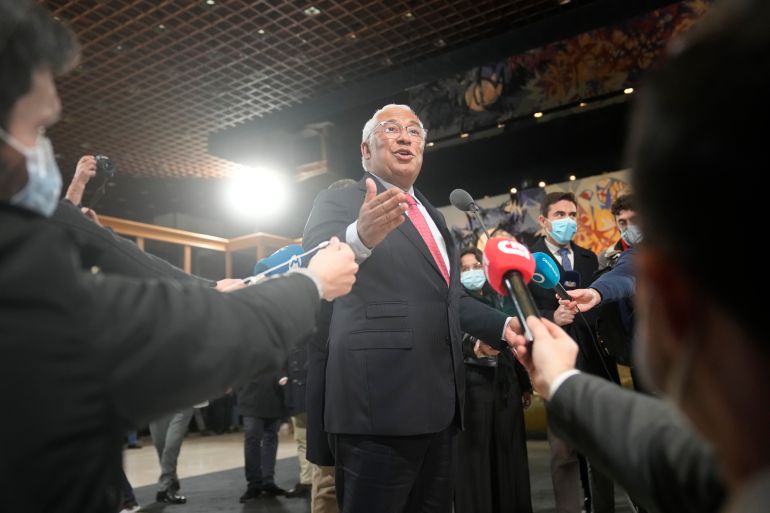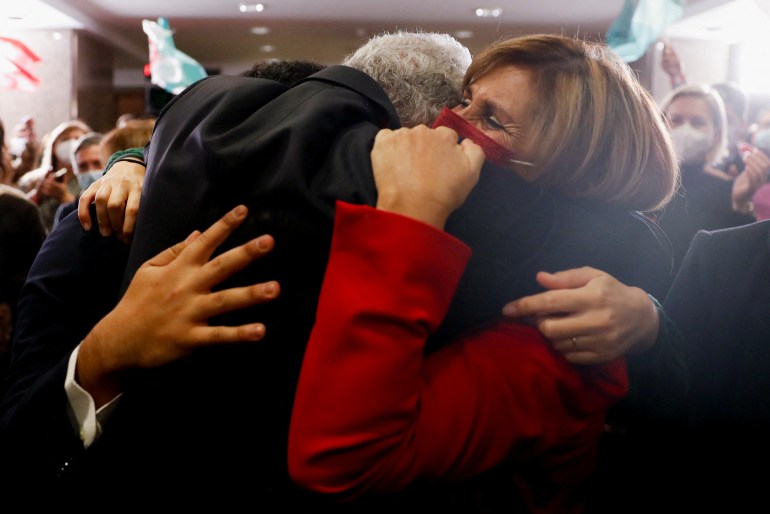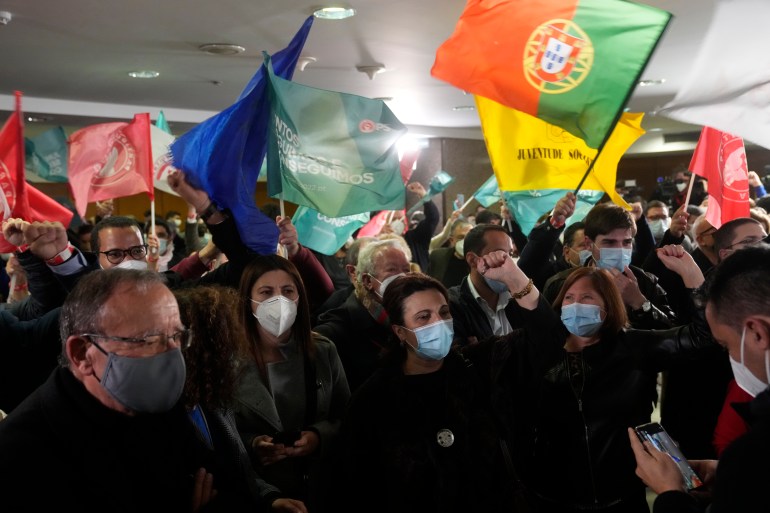Portugal’s ruling Socialists win surprise victory in snap poll
Party secures strong new mandate following higher than expected turnout after people with COVID were allowed to vote.

Portugal’s centre-left Socialists have won an outright parliamentary majority in Sunday’s snap election, securing a strong new mandate for Prime Minister Antonio Costa as the country prepares to deploy billions of dollars in European Union aid in the wake of the COVID-19 pandemic.
The result, boosted by a higher than expected turnout despite the coronavirus pandemic, came as a surprise after the Socialists had lost much of their lead in recent opinion polls.
Keep reading
list of 4 itemsChances of absolute majority look slim for all in Portugal vote
Far-right party poised to make major gains in snap Portugal polls
Portuguese president calls snap general election for January 30
In a ballot that took place amid a surge of coronavirus cases blamed on the Omicron variant, and with about one million people with COVID-19 allowed to leave home to cast their ballots, the Socialists took 117 seats in the 230-seat parliament, up from 108 in the outgoing assembly.

“An absolute majority doesn’t mean absolute power. It doesn’t mean to govern alone. It’s an increased responsibility and it means to govern with and for all Portuguese,” Costa said in his victory speech.
Before the final results came in, Costa said the party had won 117 or 118 seats in the 230-seat parliament, up from 108 in the 2019 election, and his supporters erupted in loud celebrations, singing the old revolutionary anthem “Grandola” and waving flags.
The vote was called in November after Costa’s former hard-left Communist and Left Bloc allies joined the right to defeat his minority government’s budget.
The two far-left parties paid the price, losing more than a half of their seats, according to exit polls.
The centre-right Social Democrats were at a distant second with 71 seats, while the far-right Chega emerged as the third-largest parliamentary force, taking 12 seats in parliament from just one in the previous legislature.
Four seats still need to be attributed in the coming days with the results of votes cast abroad, but in 2019 the Socialists obtained two of those.
Vote for stability
Costa, who first came to power in 2015, has presided over a period of steady economic growth that helped shrink the budget deficit and even eke out a small surplus in 2019, before the pandemic struck.
Catia Reis, a 39-year-old human resources manager, said she had voted for the Socialists because “stability is needed”.
“It is not the moment for a political change,” she told the AFP news agency after casting her ballot at a Lisbon polling station.
It will be the first time the Socialists have an absolute majority and the stakes are high for Costa’s incoming administration.
Portugal, a country of 10.3 million people and the poorest in western Europe, is poised to begin deploying 16.6 billion euro ($18.7bn) in EU recovery funds it is due to receive by 2026. Some will go to public projects, such as major infrastructure.
With more than a tenth of the population estimated to be isolating due to COVID-19, the government had allowed people with the virus to leave isolation and cast ballots in person, and electoral officials donned protection suits in the afternoon to receive them.

Turnout was on track to beat 2019’s record-low 49 percent participation.
As in many European countries, COVID-19 infections have spiked, although vaccination has kept deaths and hospitalisations lower than in earlier waves.